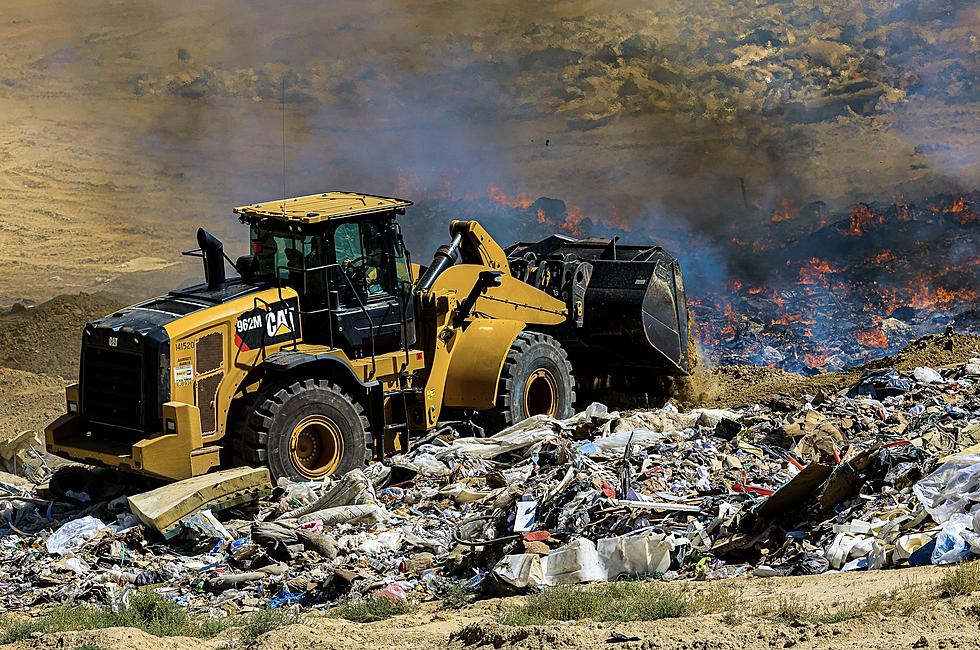![Landfill Liner Stops Environmental Damage [PHOTOS, AUDIO]](http://townsquare.media/site/101/files/2012/01/01.06-landfill-liner.jpg?w=980&q=75)
Landfill Liner Stops Environmental Damage [PHOTOS, AUDIO]
There was a ribbon cutting for a new storage cell at the landfill in Casper Friday. Cindie Langston, solid waste manager for the city, says the thing to celebrate about this 14-acre, 3.5 million-dollar hole in the ground is that it's lined.
Almost six years of preparation:
"That celebration, from the city's standpoint, is that we are now in a lined facility and that we're not releasing any contaminates into our community, so this is a good step forward in protecting our environmental health."
Ms. Langston said there are earlier sections of the landfill that were not lined and it's causing some environmental problems that they are going to have to clean up.
Prevention saves money:
"The remediation cost that we're going to have to spend on this old landfill, right now that's estimated at 14 million. If you can imagine, that 14 million that we're going to have to put into clean-up, if we'd lined, I assure you, that it would've been a lot less."
Bill Hensley, with Solid Waste Professionals, said this liner was about 450 thousand dollars to buy, and another 150 thousand to install.
Liner is 60 millimeters thick:
"Comes in 22-and-a-half-foot-wide rolls, and the rolls can be anywhere from 300 to 600 feet, depending on the thickness of the material. You can almost see the seams; it's a six-inch overlap; it's heat welded; the weld itself is stronger than the material."
Project Manager for Oftedal Construction Chris Audiss said the sandy soil of the landfill was trickier to move, but they finished the project in good time.
Moving dirt:
"One-point-three million yards to move, and we had three months to try and get 'er done, three and a half months, so we had to have some big machines out here to get the work done. HENSLEY: What'd you average? AUDISS: Fifteen- 17-thousand yards a day. HENSLEY: That's movin' dirt."
The abundance of space in the landfill is bad in a way, says Ms. Langston, because there is little incentive to reduce the amount of waste we produce, and it's more than people realize.
Three pounds per person, per day:
"It's about three (hundred) to 350 tons, that's what our average daily is, so that's why we really need to focus on reducing our waste and not generating so much, 'cause that's quite a bit of waste."
More From K2 Radio









